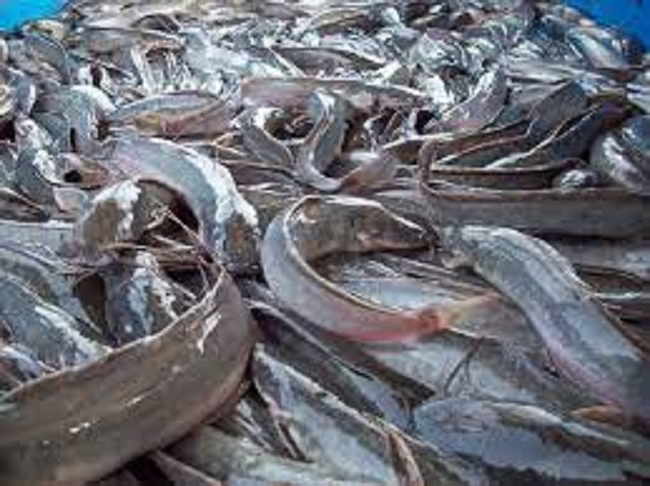As part of efforts to raise awareness about policies and interventions that could address some of the challenges associated with the supply of affordable, safe, and nutritious foods in Nigerian markets, new project, Research Supporting African MSMEs to Provide Safe and Nutritious Food (RSM2SNF), organized a two-day training for 80 participants consisting of fish processors and traders in Rahama fish market, government, research, and academia who are affiliated with food safety in the value chains of fish in Ibadan.
The training which took an in-person format was held at the University of Ibadan, Center for Sustainable Development in Bodija, Ibadan, led by the project’s food safety lead, Prof Adewale Obadina and the principal investigator, Prof Saweda Liverpool Tasie, who gave an overview on the general principles of learning for trainers, highlighted the goals of the training which included increasing the awareness of traders about good hygiene practices during fish farming, transportation processing and sale as well as enhancing the technical skills of fish traders to meet recommended food hygiene practices, and to enable participants to identify the possible sources of contamination of fish and understand the importance of food safety in handling fresh and processed fish.
The fish processors were taken through six modules as well as a baseline survey on their attitude and knowledge of food safety practices, post-training survey to test their understanding of the training module and sessions of questions and answers and feedback on the impact of the training on their handling practices.
One of the objectives of the RSM2SNF project is to explore and raise awareness about policies and interventions that could address some of the challenges associated with the supply of affordable, safe and nutritious foods in Nigerian markets.
ALSO READ: Anambra govt flags off tree planting campaign
The project identified a lack of code of practices for good handling of several commodities including fresh tomatoes, fresh green leafy vegetables and fresh and processed fish and in response, carried out a review of global codes of practices for food safety and developed a draft guideline for good handling practices (GHPs) for tomatoes, green leafy vegetables and fish for Nigeria.
The project in its second year held a meeting with the stakeholders to validate the code of practices that was developed, and the feedback received was incorporated into the final draft. And the training was to co-create with market authorities, strategies for the enforcement of the codes of food safety practices and assess the value of that enforcement for the market; being able to showcase that having these practices exist and are enforced in their market is a way to attract investment and or further support from government and/or development partners.
RSM2SNF, a five-year project expected to run between 2022–2026, is sponsored by the Bill and Melinda Gates Foundation and implemented by Michigan State University (MSU) working with partners in Nigeria and Tanzania to respond to the observation that African agrifood systems are growing and transforming.
At the end of the training, the traders appreciated the management of the project and expressed the conviction that practising the knowledge gained from the training will enable them to attract both local and foreign investors into their markets and increase their income. They also expressed their commitment to encourage other traders to unlearn bad processing methods and learn new techniques that can help in the safe processing of fish.
NIGERIAN TRIBUNE
